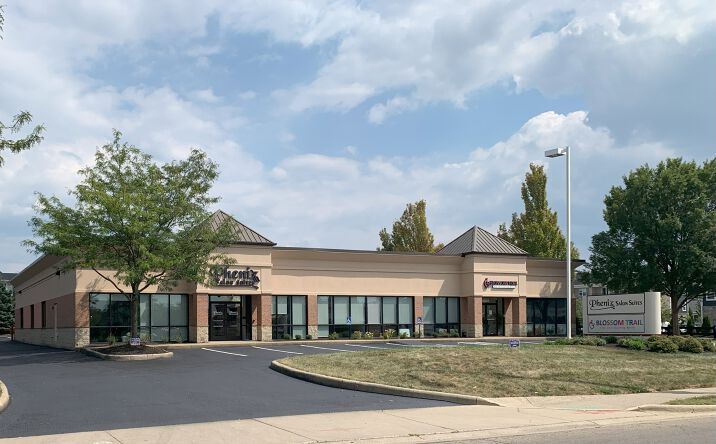Net Lease Properties for Sale: A Comprehensive Guide for Investors
Novembre 13, 2024 3:30 - no comments yet | No one following this article yet.
Net lease properties for sale have become a popular investment choice for those seeking stable income streams with less management complexity. A net lease is a lease agreement where the tenant is responsible for additional costs beyond the base rent, such as property taxes, insurance, and maintenance. This type of arrangement benefits both investors and tenants in several ways, offering long-term financial security for property owners and predictable operating costs for tenants.
In this article, we will explore what net lease properties are, the different types of net leases, the benefits of investing in net lease properties, and key factors to consider when looking at net lease properties for sale.
What Are Net Lease Properties?
Net lease properties for sale are commercial real estate properties where the tenant agrees to pay not only the rent but also a portion of the property’s operating expenses. These expenses usually include property taxes, insurance, and maintenance costs, depending on the structure of the lease. The tenant’s responsibilities make net lease investments attractive because the investor is freed from many of the operational burdens typically associated with property ownership.
In a net lease agreement, there are typically three main types:
- Single Net Lease (N): The tenant is responsible for property taxes in addition to the rent. The landlord still manages insurance and maintenance costs.
- Double Net Lease (NN): The tenant is responsible for property taxes and insurance, while the landlord handles maintenance costs.
- Triple Net Lease (NNN): The tenant is responsible for property taxes, insurance, and maintenance costs, making it the most common type of net lease. Investors in triple net lease properties enjoy a more hands-off investment since the tenant handles most of the property’s expenses.
Types of Net Lease Properties for Sale
When considering net lease properties for sale, investors typically look at the types of buildings and the tenants in place. The properties can vary significantly in terms of size, location, and tenant stability. Below are some common types of net lease properties:
- Retail Net Lease Properties: Retail spaces such as shopping centers, fast food chains, or convenience stores often operate under net lease agreements. These properties attract long-term tenants with stable cash flows, particularly national tenants like drugstores, banks, and fast-food chains, which are seen as reliable.
- Office Net Lease Properties: Office buildings leased to professional tenants, such as law firms, medical offices, or corporate offices, can also be structured with a net lease. While these properties are typically more susceptible to market changes, stable tenants in long-term leases can provide steady returns.
- Industrial Net Lease Properties: Industrial properties, such as warehouses or distribution centers, are increasingly popular in the e-commerce-driven economy. These properties are often leased to large companies involved in manufacturing or logistics, which tend to have long-term leases.
- Medical Net Lease Properties: Healthcare-related properties, such as medical offices or clinics, are another segment of net lease real estate. These properties are highly sought after because healthcare providers are typically in demand and sign long-term leases, making them low-risk investments.
Benefits of Investing in Net Lease Properties for Sale
Investing in net lease properties for sale offers several compelling advantages, especially for those looking for low-maintenance, steady income-producing assets.
- Predictable Income: With a long-term tenant responsible for paying rent and many of the operating expenses, investors can enjoy a predictable cash flow. This makes net lease properties ideal for investors seeking stability and consistent returns.
- Lower Risk: Tenants in net lease agreements are often large, reputable companies with established financial histories. This lowers the risk for investors compared to other types of commercial real estate investments where tenants may be less stable.
- Minimal Landlord Responsibilities: With tenants handling most of the expenses related to the property, investors are relieved from the day-to-day management tasks such as maintenance, repairs, and paying property taxes. This makes net lease properties especially attractive for passive investors who want minimal involvement.
- Long-Term Lease Agreements: Net lease properties often come with long-term lease agreements, which can range from 10 to 25 years. These long leases provide stability and help ensure that income continues to be generated for years.
- Appreciation Potential: While net lease properties are primarily income-driven, they also have potential for appreciation over time, particularly in areas with strong demand or high tenant retention rates.
Factors to Consider When Purchasing Net Lease Properties for Sale
Before purchasing net lease properties for sale, there are several key factors to evaluate to ensure a sound investment decision.
- Tenant Stability: The reliability and financial stability of the tenant are crucial. A tenant with a strong financial background is less likely to default on payments, ensuring consistent income for the investor. National tenants or large, reputable companies are typically ideal.
- Location: The location of the property is always a key consideration in real estate investment. A prime location in a growing or established market will not only attract tenants but also ensure the long-term value of the property. Net lease properties in high-traffic areas, such as shopping centers or business districts, often provide higher returns.
- Lease Terms: Pay close attention to the lease terms when evaluating net lease properties for sale. Key considerations include the length of the lease, rent escalations, renewal options, and tenant responsibilities. Ideally, the lease should have a long term with rent increases over time to hedge against inflation.
- Property Condition: Although net lease tenants are typically responsible for maintenance and repairs, it’s still essential to evaluate the condition of the property before purchase. An older property with hidden issues could lead to unexpected costs, even if the lease structure places most of the maintenance burden on the tenant.
- Cap Rate and Return on Investment: The capitalization rate (cap rate) is a critical factor in determining the potential return on investment (ROI) for a net lease property. A lower cap rate often indicates a higher property value, while a higher cap rate may indicate a better return relative to the price paid.
Conclusion: Why Consider Net Lease Properties for Sale?
Net lease properties for sale offer a unique investment opportunity that can provide steady income with minimal involvement. With stable tenants, long-term leases, and predictable expenses, investors can enjoy a relatively passive income stream. Whether you're looking for retail, office, industrial, or medical properties, the net lease structure offers numerous benefits and can be an excellent addition to your real estate portfolio.
Before purchasing net lease properties, it’s essential to assess the tenant’s financial stability, the property’s location, and the terms of the lease. Doing your due diligence and understanding the key factors of the net lease investment will help you make a more informed decision and maximize your returns.
As always, it’s important to consult with a real estate professional or financial advisor to ensure that investing in net lease properties aligns with your investment goals.


0no comments yet
Please type the two words below